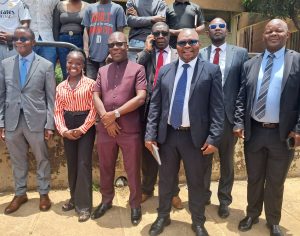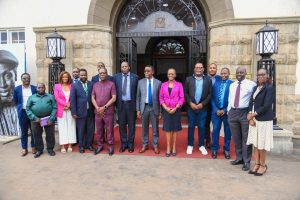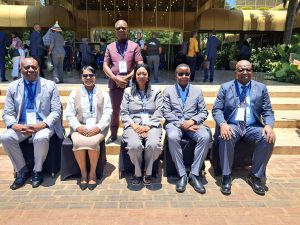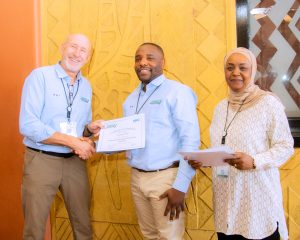
Ruins Hostels Go Digital: ZAMREN Powers Internet Connectivity at UNZA
The Ruins Hostels at the University of Zambia (UNZA) now have internet powered by the Zambia Research and Education Network (ZAMREN). This milestone forms part of ZAMREN’s Student Halls of Residence Internet Upgrade Project, which has, for the first time in the university’s history, extended high-performance internet connectivity directly into student accommodation facilities. Through a 50-50 cost-sharing partnership between UNZA and ZAMREN, reliable connectivity is now accessible within the Ruins Hostels, enabling students to participate in virtual lectures, access research databases and digital libraries, collaborate online, and continue academic engagement beyond lecture hours. Previously, over 90% of student hostels lacked structured Wi-Fi coverage, leaving thousands of students dependent on personal data bundles and constrained bandwidth during peak academic hours. The upgrade therefore represents not just improved connectivity, but a direct response to long-standing digital access challenges within student residences. Speaking during the official handover ceremony at the Great East Road Campus, UNZA Vice Chancellor, Professor Mundia Muya emphasized the strategic importance of digital infrastructure in higher education, stating that “Effective hybrid learning is crucial in complementing face-to-face learning. Reliable digital connectivity is central to aligning UNZA with modern university standards and ensuring students remain competitive in a digital world.” He further noted that extending internet access to hostels is not merely a technical upgrade, but a deliberate step toward strengthening academic delivery, research capacity and student success. ZAMREN Chief Executive Officer, Mr. Stein Mkandawire underscored the broader national significance of the project, stating that “Internet connectivity is no longer a luxury, it is a fundamental enabler of education, innovation and national development. A student’s room should not be a barrier to knowledge, it should be a gateway to opportunity.” He added that the 50-50 cost-sharing model demonstrates institutional commitment and sustainability, noting that “When institutions co-invest in digital infrastructure, they strengthen sustainability and long-term impact. This is about shared responsibility and shared progress.” The Ruins Hostels upgrade represents a total investment of K825,516.25 (Eight Hundred Twenty-Five Thousand Five Hundred Sixteen Kwacha and Twenty-Five Ngwee), underscoring the joint commitment by UNZA and ZAMREN to delivering sustainable, student-centred digital infrastructure. ZAMREN remains firmly committed to the continued implementation and expansion of the Student Halls of Residence Internet Upgrade Project across member institutions, ensuring that student accommodation spaces evolve into fully integrated digital learning environments.






